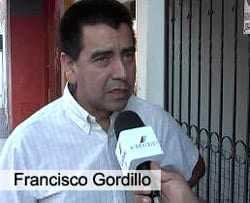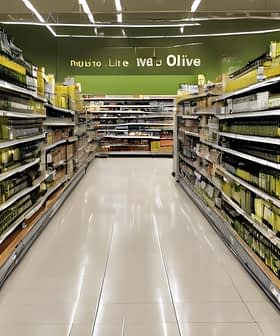By Sarah Schwager
Olive Oil Times Contributor | Reporting from Buenos Aires
A state of emergency has been declared within Argentina’s olive oil sector, with companies involved in olive production in the Pomán region to be exempted from paying municipal taxes and fees for the next six months.
The announcement comes after a fall in returns and numerous redundancies across the sector, caused by the worldwide drop in olive oil prices, the requirement for varietal conversion to other species with higher yields, and difficulties related to the marketing of products. Pomán councilors have demanded that the Catamarca Government move to counter the crisis that is
affecting olive oil ventures and that has led to fifty layoffs in the past two weeks.
 Pomán Mayor Francisco Gordillo hopes the declaration of an emergency will ease the region by reducing the tax burden on the sector.
Pomán Mayor Francisco Gordillo hopes the declaration of an emergency will ease the region by reducing the tax burden on the sector.
The olive oil industry has hugely benefited Pomán, which lies in the Catamarca Province in Argentina’s north-west and has a population of just 9,500 people. Its main source of income is from the agricultural industry, chiefly wine, nuts and olives.
The crisis has led to a public battle between the City Council and the Provincial Government, with the mayor lashing out against the Government for its lack of a policy to help counter the plight.
Mayor Gordillo told Catamarca newspaper El Ancasti that the province needs to implement a subsidy system that will address the situation, in turn preserving the source of employment for many local families.
the source of employment for many local families.
“Expectations are not great for a community that has grown massively. This is seriously hurting us because people are losing their jobs and there are technicians who had settled in the town who have started to move,” he said.
He says the Argentinean Government is not looking for ways to preserve private employment, especially in the regional areas.
Catamarca’s Minister of Production and Development, Juan José Bellón, denied the criticism, saying the Government is working to mitigate the consequences of the crisis in the olive sector.
He also acknowledged the problems throughout the local olive industry, which he attributed mainly to the low international price of olive oil. He says the department is working with the Ministry of Finance and other departments to try to relieve some payments, and is calling on the nation to lower the value-added tax on electricity rates.
But the mayor says the Government does not provide a support mechanism for olive oil production, and says there should be negotiations with companies to help provide a solution and keep these jobs. “I was trying this with some employers. They say they talked with the Government and that they are not giving weight to this issue. They have not been provided any type of solutions and they have to reduce some fixed costs, which in this case passes through to the employees. The returns that they have had were not what they hoped and companies must cut costs. The situation becomes increasingly complicated,” Mayor Gordillo said.
weight to this issue. They have not been provided any type of solutions and they have to reduce some fixed costs, which in this case passes through to the employees. The returns that they have had were not what they hoped and companies must cut costs. The situation becomes increasingly complicated,” Mayor Gordillo said.
Meanwhile, Argentina’s Ministry of Agriculture, Livestock and Fishing has carried out a review on the development of the 2010 – 2016 Agri-Food and Agribusiness Strategic Plan, which applies to all of the nation’s 23 provinces. The Ministry says the Catamarca province has been working for some time on the elaboration of strategic plans.
Working groups have been formed to design strategies for the grapevine, walnut, olive, citrus, aromas and spices, grains and oilseeds, sweets and confectionery,
dairy and livestock sectors.








